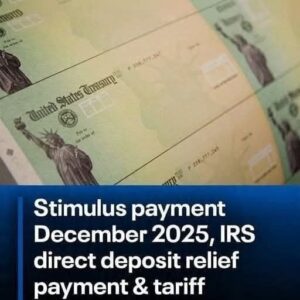Two federal judges on Friday ordered the Trump administration to unlock emergency reserve funds to cover food stamp benefits for tens of millions of Americans in November.
The rulings were a direct rebuke to the U.S. Department of Agriculture’s claim that it could not access the money during the ongoing government shutdown, CNN reported.
Judges in Massachusetts and Rhode Island rejected the agency’s argument that the $5.3 billion contingency fund was off limits as the closure entered its second month.
SNAP, the federal food stamp program, costs between $8 billion and $9 billion each month, meaning the ordered release won’t fully cover November benefits.
Still, the rulings mark a rare case of the courts attempting to compel executive action during a funding standoff.
“There is no doubt that the … contingency funds are appropriated funds that are without a doubt necessary to carry out the program’s operation,” U.S. District Judge John McConnell of Rhode Island said.
“The shutdown of the government through funding doesn’t do away with SNAP, it just does away with the funding of it,” he said.
McConnell’s ruling came just minutes after U.S. District Judge Indira Talwani in Boston issued a near-identical decision.
BREAKING: A federal judge in Boston has ruled that the Trump administration’s attempt to suspend SNAP funding is “unlawful,” but declined to immediately order that the program be funded. https://t.co/11TQUKduLn pic.twitter.com/0WtBqsS5T0
— ABC News (@ABC) October 31, 2025
Both judges were appointed under former President Barack Obama.
They also noted that the administration could draw on nearly $17 billion more to fully fund November SNAP payments, though the White House has resisted, arguing that doing so would hurt child nutrition programs.
🚨 Federal Judge Orders Trump Admin to Spend SNAP Funds — Separation of Powers on Thin Ice
The Trump team argued it couldn’t legally use the $5 B contingency fund to pay food benefits during the shutdown.
Judge Indira Talwani, an Obama-appointed federal judge in Massachusetts,… pic.twitter.com/YdPzwzKixs
— Jake (@JakeCan72) October 31, 2025
“This court has now clarified that Defendants are required to use those Contingency Funds as necessary for the SNAP program,” Talwani wrote.
“And while these contingency funds reportedly are insufficient to cover the entire cost of SNAP for November, Defendants also may supplement the Contingency Funds by authorizing a transfer of additional funds … to avoid any reductions,” she said.
Even with the court orders, millions could still face delays.
SNAP benefits were supposed to be sent out on Nov. 1, but state systems and the USDA must now scramble to restart payments.
President Donald Trump suggested Friday that the situation might not be as dire as some officials have claimed.
“Well, there always is,” Trump said when asked whether the administration could find money for SNAP.
…A second federal judge in Rhode Island also ordered the use of emergency funds to continue to pay SNAP during the shutdown. https://t.co/y8HVKS8kCu Such orders raise serious questions of judicial overreach in ordering the use of discretionary or emergency funds.
— Jonathan Turley (@JonathanTurley) October 31, 2025
He blamed Democrats for prolonging the shutdown.
“All the Democrats have to do is say, let’s go,” Trump said. “I mean, they don’t have to do anything — all they have to do is say the government is open.”
In more than five decades of the program’s existence, a government shutdown has never halted the distribution of SNAP funds.
The 2018–19 stalemate, however, came close.
This week’s legal action came from Democratic attorneys general and governors in 25 states and Washington, D.C.
A separate lawsuit was also filed in Rhode Island by cities, nonprofits, unions, and small businesses.
“Even if we get immediate guidance, it will unfortunately be delayed while States get the money out,” the president said on Truth Social Friday evening. “If we are given the appropriate legal direction by the Court, it will BE MY HONOR to provide the funding, just like I did with Military and Law Enforcement Pay.”



